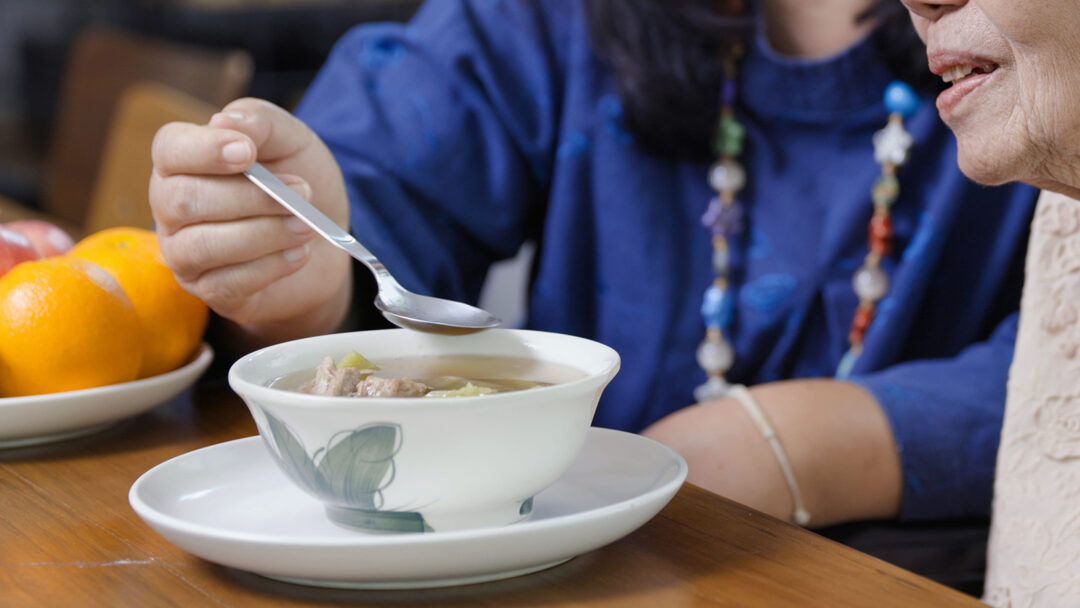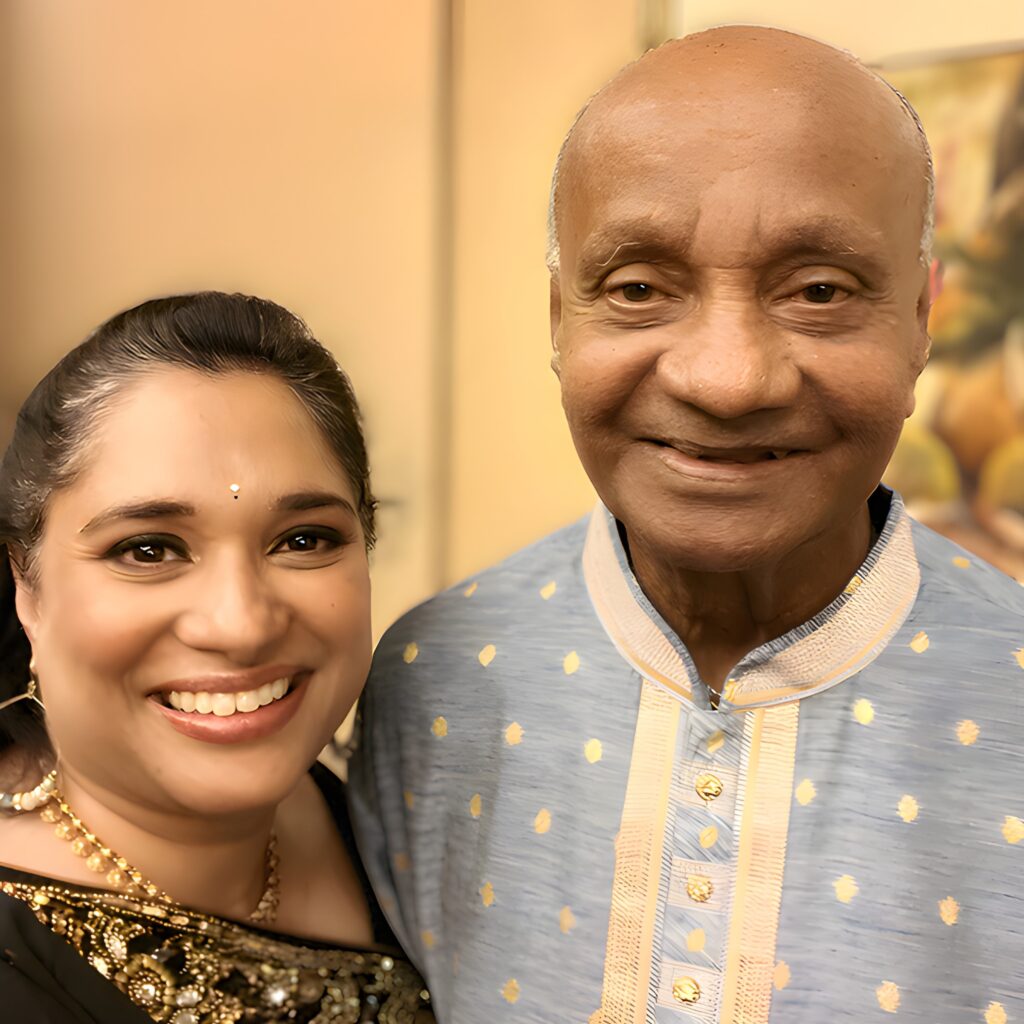Researchers aim to ease mealtime challenges for dementia patients and caregivers

Researchers at McMaster’s Aging Swallow Research Lab, in collaboration with the Alzheimer’s Society of Brant, Haldimand Norfolk, Hamilton, and Halton, are providing guidance on mealtime challenges for people living with dementia and their caregivers. They are hosting a community event, Preparing for Mealtime Changes: Learning about Changes in Eating Habits and Nutrition, on Thursday, June 27, from 1-3:30 p.m. at the Sackville Senior Centre in Hamilton.
Mealtimes can be significant social and cultural events that enhance the quality of life. However, for individuals with dysphagia (swallowing difficulties), they may become sources of anxiety and isolation due to the risk of choking and lung complications. Dementia worsens these challenges, causing issues such as memory loss and problem-solving difficulties, which can hinder eating and drinking.
Many people with dementia experience changes in their ability to feed themselves, weight loss, malnutrition, changes in appetite, difficulties with cooking, and challenges in recognizing hunger or swallowing food. These changes not only affect the health and well-being of individuals with dementia but also create significant challenges for their caregivers.
Caregiver perspectives
Malene Stewart, a caregiver for her mother with Alzheimer’s disease, shares, “As a caregiver, there are many demands that I am juggling, including full-time work, parenting four boys, and managing my own self-care needs. I am responsible for scheduling PSW care, doctors’ appointments, medication, and attending to her nutritional needs.”

Many caregivers are unaware that dysphagia can be managed by professionals like speech-language pathologists or registered dietitians. For many, information about mealtime changes and resources is often not provided early enough, and discussions about swallowing issues may be overshadowed by other care priorities.
Hamilton and neighbouring cities offer several resources, including outpatient swallowing clinics at St. Joseph’s Hospital and McMaster Hospital, respite day programs from organizations like the Good Shepherd and The Salvation Army, and home and community care services with dietitians and speech-language pathologists.
However, navigating these resources and long waitlists can be challenging. Stewart’s family doctor recommended participating in a swallowing study with the Aging Swallow Research Lab at McMaster University for a quicker assessment.
“Connecting with the research team for the swallow study was a positive experience. My mom received a full swallow assessment, and as a caregiver, I was able to share my concerns while receiving education about swallowing. It felt like my community of support was increased through the connection I had with the study,” Stewart recounted.
Similarly, Jyothy Nair, a registered nurse caring for her father with dementia, echoed these sentiments. “As an RN, I work with a lot of people at the bedside who have dementia in both the acute and palliative care settings. It’s a whole different kettle of fish when one is a caregiver for their parent. I must intentionally practice self-care to ensure I don’t get burnt out from being a caregiver as well as a front-line healthcare provider.”

Nair and her father also received help from the lab’s swallowing study. “I thought it was an excellent opportunity to get the assessment my father needs while also helping with the study. It was a double win. My father and I had a fantastic experience.”
Ashwini Namasivayam-MacDonald, director of the Aging Swallow Research Lab and assistant professor at McMaster’s School of Rehabilitation Science, emphasizes the importance of incorporating community voices in research. “Our healthcare system is so focused on the patient and their cognitive impairments that swallowing function, which is essential to overall well-being, is considered secondary. We’re trying to change that and we’re doing it with the help of people with lived experiences of caring for someone with dementia.”
Connecting with the community
The community event on June 27 will feature a panel discussion with a speech-language pathologist (Namasivayam-MacDonald), dietitian, and caregivers, highlighting innovative products and recipes to make mealtimes more enjoyable for individuals with dysphagia.
For more information or to register for the June 27 event, visit the Eventbrite page or the local Alzheimer’s Society chapter events webpage.
Learn more about the Aging Swallow Research Lab.
Activities, News, Research Project